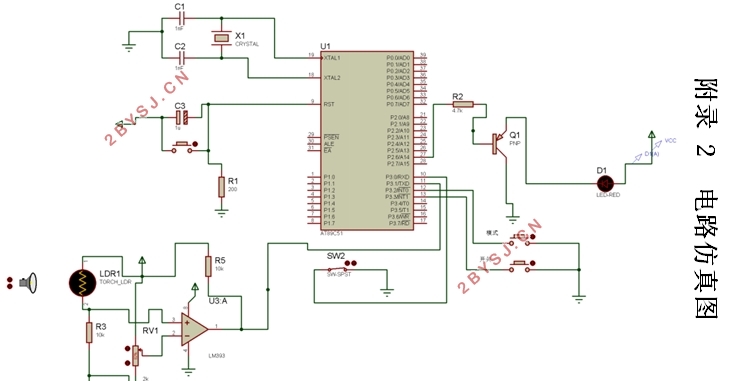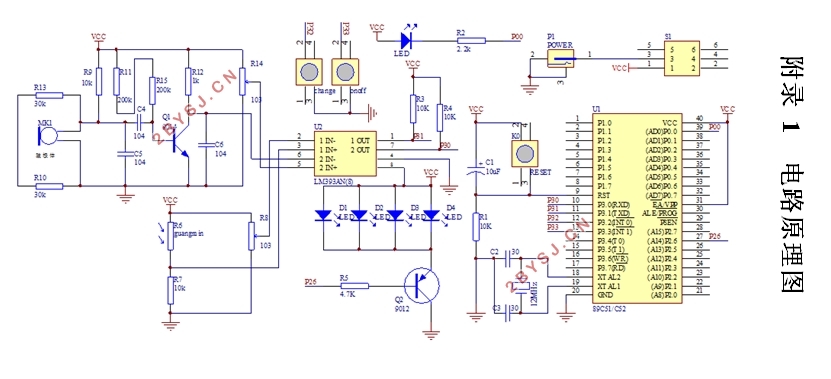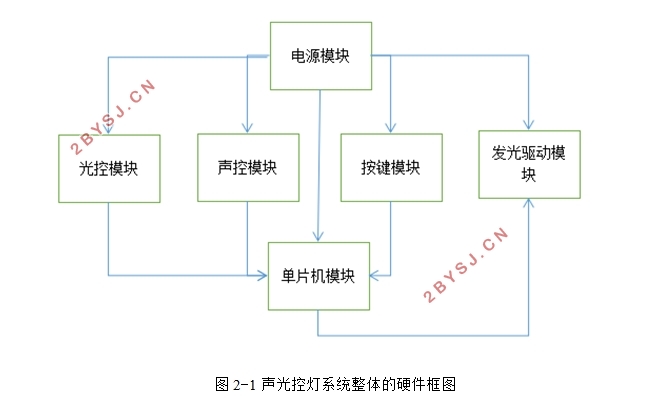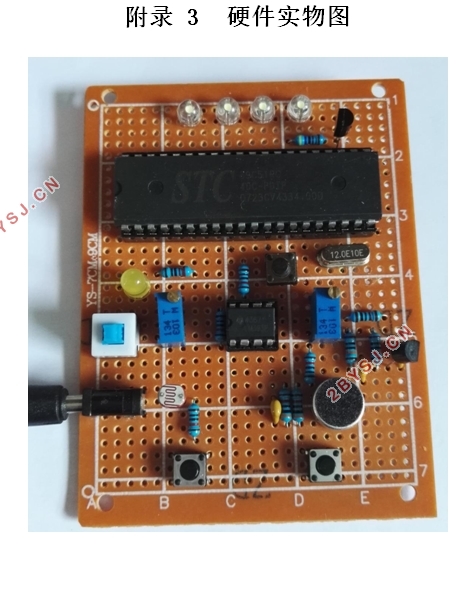基于单片机的声光控灯设计
无需注册登录,支付后按照提示操作即可获取该资料.
基于单片机的声光控灯设计(论文10000字)
摘要
随着社会的不断进步,人们逐步认识并接受低碳生活,并从很多方面开始关注,特别是在环保上做出了很多努力。通过声音和光线的强弱程度来控制电路开关的断开或者闭合的电子产品能够明显的降低能耗,节约能源。声光控灯开关的作用是根据光照以及声音情况自动控制灯泡的开关。当光线暗下来,有人在楼道里走动发出脚步声或者其他声音时,声光控灯会自动发光照明。当没有声音时,灯泡会在 30秒后自动熄灭。节能主要体现在白天无论有没有声音,灯泡都不会亮。在该智能声光控灯系统的设计中,传感器、二极管和单片机技术相结合,只有在夜间有声音的情况下,智能灯才会发光。系统采用能对声音进行检测的驻极体话筒,可以对光线进行感应的光敏电阻,损耗低、高性能的STC89C52单片机芯片以及发光时间长损耗低的发光二极管。相对普通灯泡电路,该系统既减少了维修量,同时也减少了耗电量。
关键词:驻极体话筒 传感器 二极管 单片机
ABSTRACT
Along with the advance of society, people have known and accepted low carbon life slowly. They begin to pay close attention to this kind of life from many aspects and have made a lot of effort in environmental protection . Using the strength of the sound and light to control switch of the electronic products can effectively reduce the energy consumption and save energy. The role of intelligent switch controlled by voice and light is automatic control switch based on light and sound. The sound-light controlled switch will only work after dark, when someone walk through the corridor, footsteps or other sounds they make will result in corridor lights working automatically and providing lighting. When there is no sound, the light will automatically extinguish after 30 seconds. During the day, even if there is a sound, lights will not bright, which can achieve the goal of energy saving. In the system design process, sensor combined with diode and single chip microcomputer technology, intelligent lights will only shine under the condition of a voice in the night. System use the electric microphone which can detect voice, photosensitive resistance which can induce light, STC89C52 MCU which is low loss, high performance, dependable light-emitting diodes. Compared with ordinary light circuit, the system needs less maintenance and less power relatively.
Key words: Electret microphone; Sensor; Diode; MCU




目 录
摘要 I
ABSTRACT II
第一章 绪论 1
1.1课题研究的背景和意义 1
1.1.1背景 1
1.1.2发展前景分析 1
1.1.3智能声光控灯系统的发展现状及特点 2
1.2课题研究的主要内容 2
第二章 智能声光控灯系统的主要功能和方案设计 4
2.1主要功能和设计方案 4
2.1.1声光控灯系统的主要功能 4
2.1.2声光控灯系统的方案设计 4
2.2声光控灯系统的整体方案 4
2.2.1智能声光控灯系统的工作原理 4
2.2.2声光控灯系统的整体硬件框图 5
2.3方案选择 6
2.3.1主控芯片的选择 6
2.3.2声控传感器的选择 7
2.3.3光控传感器的选择 8
2.3.4比较器的选择 9
2.4小结 10
第三章 声光控灯系统的硬件电路设计 11
3.1电源模块 11
3.2 按键模块 11
3.3 单片机模块 11
3.3.1晶振电路 12
3.3.2 复位电路 13
3.4 声控模块 13
3.5光控模块 14
3.6 发光驱动模块 14
3.7小结 15
第四章 声光控灯系统的软件设计 17
4.1总体程序流程设计 17
4.2初始化 18
4.3模式选择 18
4.4声光控制声音信号采集 19
4.5数据处理 19
4.6发光驱动流程设计 20
4.7小结 21
第五章 声光控灯系统的硬件调试 22
5.1软件仿真 22
5.2 硬件系统调试 25
5.2.1调试过程 25
5.2.2调试结果 26
5.3问题反思 29
第六章 结 语 30
参考文献 31
致 谢 33
附录 1 电路原理图 34
附录 2 电路仿真图 35
附录 3 硬件实物图 36
